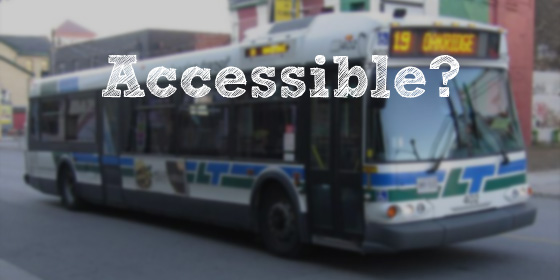Since the early stages of the AODA, a key pillar in making Ontario fully accessible has been to ensure equity in the hiring process. I was given a reminder of why these measures are so important earlier today when an odd reference check came across my desk from the Toronto Zoo. As you can see from the reference check form, attached as a PDF here, the Zoo concludes its otherwise routine check with a peculiar question: “Do you know of any special interests, qualities, experiences, or disabilities of this applicant that would be helpful for us to know about?”
Does this constitute discrimination in the hiring process? It is hard to say. Because of how the question is phrased, specifically being clustered with otherwise positive attributes like “special interest, qualities, experiences,” perhaps the Zoo is operating on some sort of internal affirmative action programme and is merely attempting to bolster the diversity of their staff. But regardless of intention, it should be apparent that this type of question is extremely problematic, if only because it is requesting a 3rd party to potentially disclose confidential medical information without the approval of the applicant.
While I’ve never encountered any legislation that speaks to reference checks or gathering information on an employee from a 3rd party, the Ontario Human Rights Code is quite clear about what you can and cannot ask an applicant during the hiring process. Both the Code and the AODA’s employment standard state quite clearly that discussions of an applicant’s disability can only revolve around the needs for accommodation and only if the applicant brings it up first or if a conditional job offer has been made. The Code then goes on to state, quite clearly, that “[a]ll other questions about an applicant’s disability are prohibited” (as seen here).
What is at stake here, and why this type of questioning is wholly inappropriate in my opinion, is that a qualified applicant could be blocked from this opportunity based on disclosure from someone other than the applicant. In some ways, this almost feels like an attempt to contravene the Code by gathering information without the applicant knowing. Worse still, the applicant could be discriminated in the hiring process without ever being able to explain their specific situation to the employer. Even if the disability benefits an applicant in the hiring process, disclosure must always be in the hands of the person with a disability, if only because of the complexity of these issues. Ultimately, the disabled population is spoken “for” too much as it is, which is part of the reason these negative stigmas exist to begin with, and so it is important to give people the opportunity here to speak for themselves.
All-in-all this is an unfair practice and I would implore the Toronto Zoo to eliminate this question from their reference check process.





